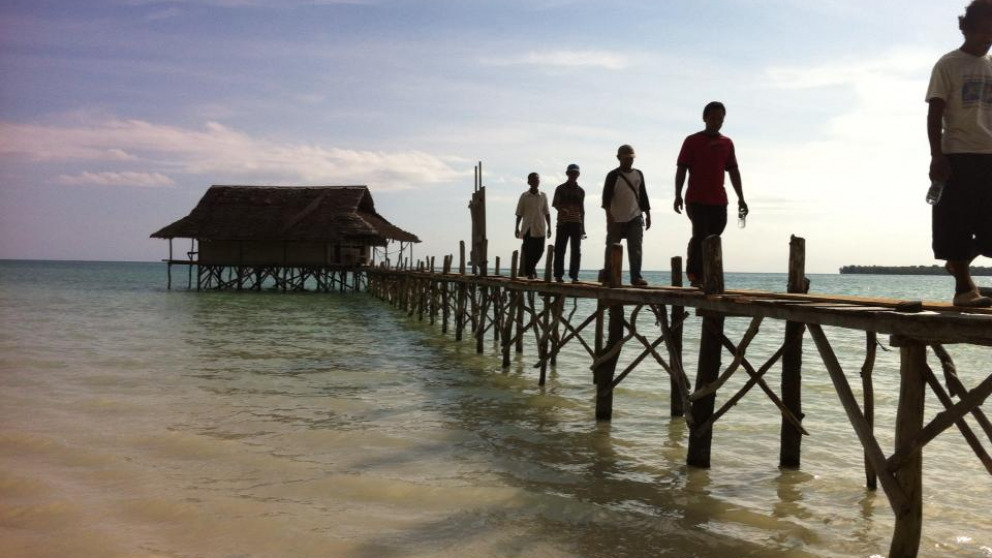Headline:
Local Efforts for a Global Agenda: IASS Policy Brief Recommends New Paths for the Protection of the Oceans

Helping to strengthen people’s and governments’ ability to achieve good ocean governance is the goal of the new IASS Policy Brief “Capacity Development for Oceans, Coasts, and the 2030 Agenda”. This policy brief was launched on the occasion of the IUCN World Conservation Congress at an IASS-hosted event on oceans and the 2030 Agenda.
For a long time, there was no comprehensive approach for the protection of the oceans. Only in the last decade have governments realised that single-species, single-issue approaches cannot stop the destruction of seas, coasts and maritime resources. An approach generally known as marine ecosystem-based management (MEBM) is regarded as the best known practice to ensure the long-term sustainability of oceans and the benefits that they provide. Many countries and practitioners have come far in this transition on governance, but some governments, local communities and global partnerships need greater support. The policy brief explains the benefits of MEBM and recommends policy, investment, and practice approaches to place capacity development in the service of sustainable ocean governance.
Only with an integrated management, the authors maintain, can the 2030 Agenda for oceans and coasts be achieved – and with it a sustainable future for the people and societies depending on the oceans. There are, however, longstanding obstacles to be overcome. Above all, fostering the adoption and implementation of MEBM requires capacity development measures focused on strengthening local and regional capacities and supporting key institutions as they transition to MEBM. Many governments are calling for and organisations engaging in capacity development. Little guidance exists, however, on how to fund, design, implement, and measure the impact of efforts to strengthen ocean governance capacities. To address this need, the IASS hosted a series of knowledge exchanges involving international experts with decades of experience in capacity development in marine and coastal management. The policy brief, written by 16 authors from different fields and world regions, draws on knowledge gained through these exchanges.
The authors provide three central policy recommendations, each presenting vital aspects of this new capacity development paradigm to implement the 2030 Agenda for oceans and coasts by strengthening ocean governance human and institutional capacities:
- Place capacity development in the service of the transformation of ocean governance. Achieving the goals of the 2030 Agenda in relation to oceans, coasts, and marine resources fundamentally relies upon strengthening capacities and institutions to achieve marine ecosystem-based management.
- Promote a new paradigm of capacity development. Capacity development based on good practice is essential to achieve the 2030 Agenda for oceans and coasts. We must adopt a new vision for capacity development with a focus on donor coordination, effective development cooperation, long-term investment, localisation, and regional ocean governance and its application at national and local scales.
- Make capacity development and ocean governance work across boundaries and contexts. Capacity development in practice can help make ocean governance more effective across boundaries and contexts, thereby overcoming longstanding obstacles to cross-sectoral, cross-scale, and ecosystem-based governance. Core components of capacity development in practice include: adopting a local, experiential learning approach fully and from the outset; aligning to ecosystem governance scales; recognising the importance of values and relationships; and focusing on delivering lasting, sustained capacity.
Shackeroff Theisen, J. M., Atkinson, S. R., Awad, A., Beaudoin, Y., Canals, P., Carole, D., Edwards, P. E. T., Gombos, M., Hornidge, A.-K., Lameier, M., Nakamura, T., Philibotte, J., Porsché, I., Pratt, C., Robertson, L. F., Schwab, P., Unger, S., Winter, A. (2016): Capacity Development for Oceans, Coasts, and the 2030 Agenda. - IASS Policy Brief, 2016, 3.
